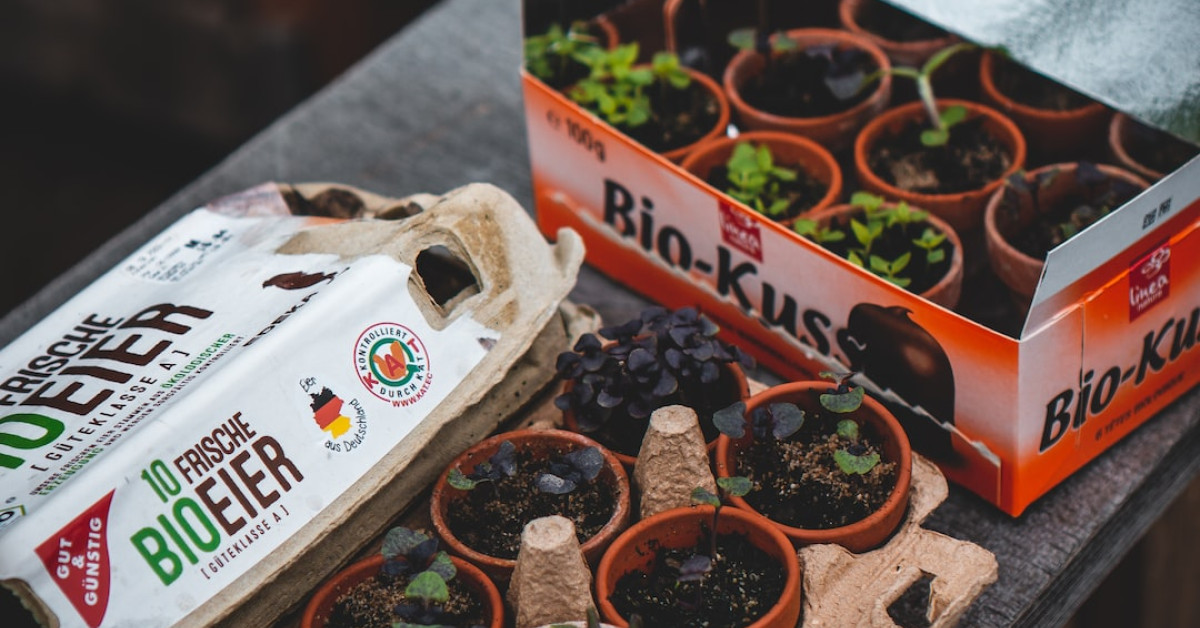In today’s fast-paced world, the way we approach food has shifted dramatically. People are becoming increasingly concerned about the quality and sourcing of their food, leading to a growing interest in organic and farm-to-table dining. This article will explore the numerous benefits of embracing this trend, from improved health and environmental sustainability to supporting local economies and communities. Join us on a journey from soil to plate as we delve into the many reasons to choose organic and farm-to-table dining.
Introduction: Embracing Organic & Farm-to-Table Dining for a Healthier Future
In recent years, organic and farm-to-table dining has gained significant popularity, and for good reason. With a growing focus on health and sustainability, people are seeking out alternatives to conventional dining practices. Organic dining refers to the use of organic ingredients, meaning the produce is grown without the use of synthetic pesticides, herbicides, or genetically modified organisms (GMOs). Farm-to-table, on the other hand, emphasizes the direct relationship between farmers and consumers, promoting local, seasonal, and sustainable food choices.
The Benefits of Organic & Farm-to-Table Dining
1. Superior Nutritional Value
Organic and farm-to-table dining offers exceptional nutritional value compared to conventionally grown produce. Organic fruits, vegetables, and grains are grown in soil that is rich in nutrients, resulting in higher levels of vitamins, minerals, and antioxidants bronzing lotion for fair skin. Additionally, seasonal and locally sourced ingredients retain their nutritional value since they are not subjected to long storage and transportation times, ensuring maximum freshness.
2. Minimizing Exposure to Pesticides and Chemicals
One of the primary benefits of organic and farm-to-table dining is the reduction in exposure to pesticides and chemicals. Conventionally grown crops often require the use of synthetic pesticides and herbicides to control pests and weeds. These chemicals can leave residues on the produce and pose potential health risks when consumed. Organic farming practices, on the other hand, utilize natural pest control methods and avoid the use of harmful chemicals, providing a safer 25+ food combinations option for consumers.
3. Supporting Environmental Sustainability
Choosing organic and farm-to-table dining practices also contributes to environmental sustainability. Conventional agriculture relies heavily on synthetic fertilizers and intensive farming methods that can deplete soil nutrients and degrade ecosystems. Organic farming, in contrast, prioritizes soil health and employs methods such as crop rotation, composting, and natural pest control, ensuring the long-term sustainability of farmland and reducing water contamination.
4. Promoting Biodiversity
Organic and farm-to-table dining fosters biodiversity by supporting a diverse range of crops and local ecosystems. Conventional agriculture often focuses on monoculture, where large areas of land are dedicated to a single crop. This practice can lead to a loss of biodiversity, increased vulnerability to pests, and decreased resilience to environmental changes. Organic farming encourages the cultivation of diverse crops, helping to preserve native plant species and maintain a healthy balance of flora and fauna.
5. Lowering the Carbon Footprint
By embracing organic and farm-to-table dining, individuals can significantly reduce their carbon footprint. Conventional agriculture relies heavily on fossil fuels for the production and transportation of synthetic fertilizers, pesticides, and the shipping of produce across long distances. In contrast, local farm-to-table dining supports shorter supply chains, reducing transportation emissions. Additionally, organic farming practices promote carbon sequestration in the soil, helping to mitigate the effects of climate change.
6. Strengthening Local Economies
Choosing farm-to-table dining options supports local farmers and strengthens the local economy. When consumers buy directly from farmers or dine at farm-to-table restaurants, they help create a direct market for locally grown produce. This direct relationship eliminates intermediaries and allows farmers to receive fairer prices for their products. Supporting local farmers also helps to preserve agricultural land and encourages the growth of small-scale, sustainable farming practices.
7. Community Engagement and Connection
Farm-to-table dining promotes community engagement and fosters a sense of connection between consumers, farmers, and the land. Many farm-to-table restaurants offer tours, workshops, and events that allow patrons to understand the food production process and connect with the farmers who grow their food. This engagement not only informs and educates consumers but also creates a stronger sense of community and appreciation for the hard work that goes into producing the food we eat.
8. Seasonal and Flavorful Delights
Organic and farm-to-table dining celebrates the seasons by utilizing fresh, locally sourced ingredients. The emphasis on seasonal availability ensures that the produce is picked at its peak ripeness, resulting in superior flavor and texture. By embracing the flavors of each season, diners can experience a greater variety of tastes and discover the unique qualities of locally grown produce.
9. Food Safety and Animal Welfare
Organic and farm-to-table dining practices prioritize food safety and animal welfare. Organic farmers adhere to strict regulations and standards that minimize the risk of foodborne illnesses. By avoiding the use of antibiotics and hormones, organic meat and dairy products provide healthier options for consumers. Additionally, farm-to-table dining allows consumers to gain insight into the farming practices and animal welfare standards, ensuring that their food choices align with their ethical values.
10. Educational Opportunities for Future Generations
Farm-to-table dining provides invaluable educational opportunities for future generations. By exposing children to the origins of their food and the importance of sustainable farming practices, we can cultivate a deeper understanding of the food system and the impact our choices have on the environment. Farm visits, community gardens, and school programs centered around farm-to-table dining contribute to a more informed and conscious generation of consumers.
Comparison Chart: Organic vs. Conventional Dining
| Aspect | Organic Dining | Conventional Dining |
|---|---|---|
| Pesticide Use | Limited or no pesticide use | Synthetic pesticides used extensively |
| Soil Health | Prioritizes soil health and fertility | Soil degradation due to intensive farming methods |
| Environmental Impact | Lower carbon footprint | Higher carbon footprint due to long-distance transport |
| Biodiversity | Promotes biodiversity | Encourages monoculture farming practices |
| Nutrient Content | Higher levels of vitamins and minerals | Nutrient content varies based on farming practices |
| Sustainability | Supports long-term sustainability | Unsustainable use of resources |
| Taste and Freshness | Seasonal and flavorful | Varies depending on storage and transportation time |
| Community Engagement | Fosters community engagement | Limited community interaction |
| Food Safety | Adheres to strict food safety standards | Potential risk of pesticide residues |
| Animal Welfare | Prioritizes animal welfare | Use of hormones and antibiotics common |
Conclusion: Embracing the Benefits of Organic & Farm-to-Table Dining
As we conclude our exploration of the numerous benefits of organic and farm-to-table dining, it becomes evident that these practices offer far more than just a meal on a plate. From improved health and superior nutritional value to environmental sustainability and community connection, organic and farm-to-table dining provides a holistic approach to food that benefits both individuals and the planet. By making conscious choices and supporting local farmers, we can create a healthier and more sustainable future for ourselves and future generations. So why not embark on a journey from soil to plate and experience the many delights of organic and farm-to-table dining?










